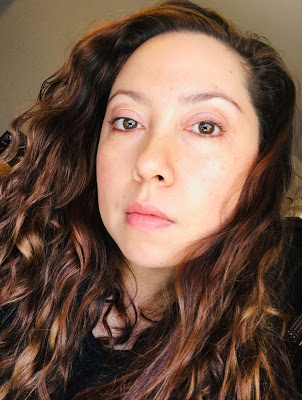Jenny Boully’s essays are gifts of wonder and experimentation, graced with invention and serious play. In "not merely because of the unknown that was stalking toward them," Boully enacts a poetic and critical reimagination of J.M. Barrie’s Peter and Wendy, reading and writing between the lines, weaving together, as she describes it, “an alternative to the traditional academic essay on literary interpretation.” The Body, an essay in footnotes, troubles and reroutes our instincts as readers for narrative and normative meaning-making. Boully’s most recent work, the collection Betwixt and Between: Essays on the Writing Life, is a permission-giving work, a provocation for essayists examining their personal relationship with the form.
At this year’s Northwestern Writer’s Festival, Boully read from her work and delivered a craft talk on the essay as a practice anchored in the trajectory of a lived life and in the vitality of fragment and assemblage. I had the pleasure of interviewing Boully over email afterward, where she met my questions with generosity and candor.
TQ: You studied creative writing as well as physics and philosophy while in college. What influence have physics and philosophy had on your sense of language, the worlds that you draw from, your thinking and feeling on the page?
JB: Despite the complexities, I was drawn to both philosophy and astrophysics for the same reason: both are attempts to comprehend vastness alongside existence. Both are mechanisms for recording and validating what is felt and sensed, witnessed and experienced. Both offer a void or brilliance, depending on how one bends one’s thinking in realms where different rules apply. In philosophy, I was struck continuously by how wondrous it is to be able to engage with minds that existed so long ago, how thought can be built upon, how ultimately, we reach out to other minds in order to know our own more intimately and, as a result, feel more connected to humanity; ultimately, you begin to see how living is always an attempt to live better and become better human beings. There was something beautiful and pure in that for me; I was also drawn to the complexities of putting into language such abstractions. Astrophysics incited the same kind of existential vertigo for me—deep realms, unknown, mysterious and sensed, postulated due to behaviors of what we can witness. In both disciplines, we are naming the void. Language does that, too. And, so, when I write, I feel that I am sensing the world, filling in the void, however imperfect that attempt.
TQ: You mention, in several of your essays, that sincerity is imperative to your writing. What is the relationship between form and sincerity for you? How does this relationship manifest in your process?
JB: I was always shy and quiet. I was the quiet girl, the shy girl. But, if you asked me, I would have said that I’m dying to talk and be heard and seen but no one understands me. And it was true. No one could understand me when I spoke as a child. I was in speech therapy (once a week, public school) to correct the accent I learned from my mother. I couldn’t pronounce simple words like “chair” until I was 15. If you would have asked me, I would say I was ashamed, not shy. I was full of urgency and intensity, but I was never going to speak, because what would be the point? So I wrote a lot as a child. It was a way to be understood and show an existence in the world. This intensity manifested as rebellion in my adolescence. I was heard in ways that were visual, seen. I think I carried that into my writing, which is also heard in ways that one must see it. So, I think about sincerity quite a bit, why I do what I do, why I write what I write. Am I still trying to be heard and seen? Or is it okay to just be understood? Or do I not want to be understood? Am I hiding still? I think a lot about my motives for writing something until I can fully say I have no motives for what I am writing. Sometimes, I wonder if, in my books, I’m still merely that little child in a small office being told to repeat “tree” and then “three” instead of talking about who she was and what she was feeling.
TQ: I’m magnetized to, and haunted by, your observation in "The Poet’s Education": “What I have learned about great writers: they were always obsessed about something, but they were seldom obsessed about writing.” Can you say more?
JB: I want to believe that writing is secondary to wonder, that writing is the transmission of that wonder. Although writing, when it really happens, can be an otherworldly existence and ethereal act, I like to think that it’s something else that takes us there.
TQ: I read your collection, Betwixt and Between: Essays on the Writing Life, as an ars poetica, as well as a kind of pedagogical antidote to the creative writing textbooks that you liken to “medieval medical devices.” How do teaching and writing interanimate each other in your practice?
JB: Having taught writing and literature for so long now, it's difficult to think that I am a teacher, because it just feels like life to me, now. It’s what fills my days and my thoughts. If anything, teaching makes me long for my own thoughts, my own mind. I am so often in someone else’s thoughts, someone else’s mind; sometimes, all of these blur along with the books and readings I’ve assigned, and it becomes difficult for me to distinguish all the various writings I’m always reading on a daily basis. I long to return to my own head, my own cultivations of lines and and sentences and beginnings. Having to do much engagement with the writings of others, when the time does finally come to work on my own, I think I give it more, stare harder, strive better, because I know how precious and fleeting such time is, that is, the time to spend merely with my own writing and thoughts. I think having taught so long has taught me to not be lazy, to take the advice I would give to my students, to never take the easy way out. Sometimes, I think to myself, oh, I wouldn’t let a student do such and such, and here I am doing it. I retract; I review; I rethink. I reemerge better for it, so I am grateful for those months of no writing and merely teaching.
TQ: In "The Page as Artifact," you pose the question:
When life filters through you, and it has given you a gift (and you’ve already been gifted as a poet, that is, with the swift ability to conjure language), will you be poet enough to return this gift on the page?
The question you pose reminds me of a 1997 interview with Anne Carson, who talks about charis as the word that the Greeks use for the grace of a poem—for the Greeks, Carson says, “to make a poem is to make something that will be so charming that it will be a gift that the world wants to receive and also give back precisely because it’s so good.” This is a question about how to sustain that reciprocity that both of you and Carson notice and attend to in your art: what do you do when you find yourself in a space or moment without the grace or capacity to fully return life’s gift on the page?
JB: If I’m being honest, I haven’t been “poet enough” nearly enough. When such gifts come, I often tell myself that I am not “poet enough” and could not possibly deliver such a gift. So I fail, I falter, I retreat. I say that my life isn’t perfect now, not stable now, not secure now, that I need to be in a better place to be that better poet. I let opportunities go like so much life. Sometimes, I just settle into a peaceful place and accept that not everything needs to or can be shared or transmitted. Sometimes, perhaps, the message is solely mine and will be taken with me in its own silence. I think that’s okay, too, to be a lone witness. I like to think these transmissions happen for everyone, that we alone can decide to deliver such messages. I like to think they gather and build, that they live in us somehow. Perhaps they will all be delivered at some distant future when I feel that I’m enough.



